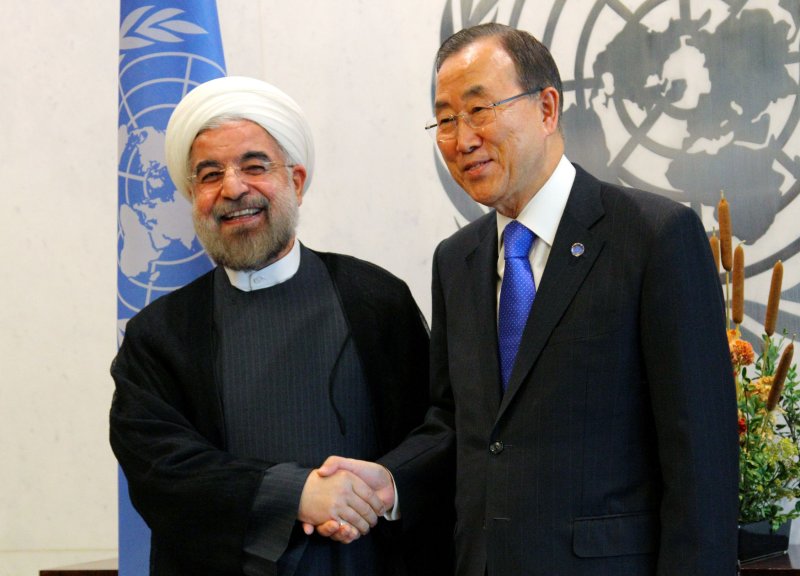President of Iran Hassan Rouhan (L) and United Nations Secretary-General Ban Ki-moon meet during the 68th session of the General Assembly at the UN on September 26, 2013 in New York City. UPI/Monika Graff |
License Photo
UNITED NATIONS, Oct. 29 (UPI) -- Multilateral coordination is needed to address the increase in terrorism in the Middle East and North Africa, U.N. Secretary-General Ban Ki-moon said.
Ban said broad-based cooperation is needed to address what he said were "worrying" tensions between various religious communities in the Middle East and North Africa. Cooperating with the Organization of Islamic Cooperation would promote tolerance and peace in the region, he said.
"Terrorism is not associated with any particular religion, culture or peoples," he said Monday. "However, in recent years, terrorist violence has disproportionately affected countries that are members of OIC, from the Sahel and North Africa to the Middle East and South Asia."
Some conservative Islamic groups like al-Qaida and the Taliban use religious edicts as justification for violence. Conflict between groups like Shiites and Sunnis, meanwhile, continues to complicate security challenges in places like Iraq.
OIC Secretary-General Ekmeleddin Ihsanoglu told members of the Security Council a collective effort was needed to address evolving security challenges in the world.
"We look forward for more engagement with United Nations to enhance the capacity of OIC on the basis of its needs and strategic priorities to enable it to act as effective U.N. partner in addressing the immediate and future challenges that face the Muslim world," he said.





